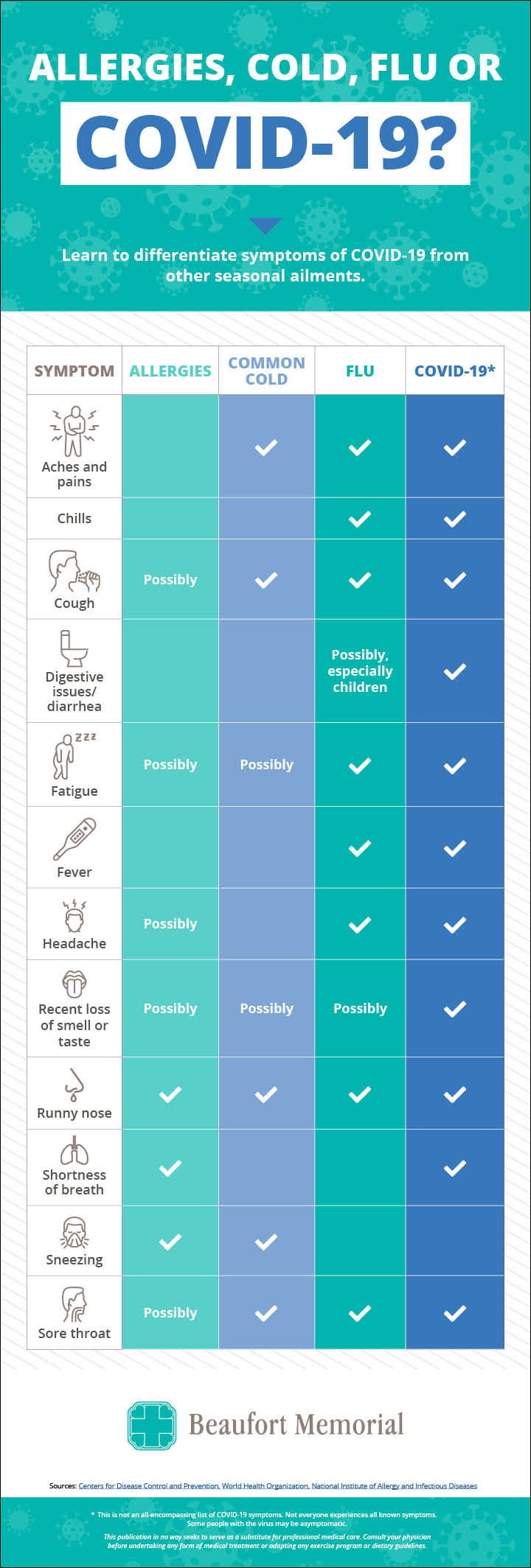How Can You Tell If You Have COVID-19?
March 23, 2021
Your body aches. You can’t stop coughing. You feel short of breath. Could it be COVID-19? Possibly.
Even though the virus that causes COVID-19 has been with us for more than a year, it’s still difficult to determine whether you have COVID-19 or a similar respiratory ailment, like a cold or allergies, without a test. Thankfully, testing is much more widely available now than when the coronavirus first appeared in March 2020, and until everyone gets a COVID-19 vaccine, testing remains an important way to learn if you are sick and need to stay isolated.
Here’s a breakdown of tests available now.
Molecular tests: These are currently considered the most accurate test for active COVID-19 infections. The inside of your nose is swabbed, and the swab is submitted to a laboratory for evaluation. You receive results within a few hours or days.
Antigen tests: Antigen tests can tell you if you have an active COVID-19 infection in a matter of minutes. These are sometimes called rapid tests. Unfortunately, antigen tests are more likely than molecular tests to provide a false negative, meaning that they may say you don’t have COVID-19 when you actually do.
Antibody or serology tests: Antibody tests can’t diagnose an active infection, but they can tell you if you’ve had COVID-19 in the past. These tests look for antibody proteins that show up in your body after you’ve been infected with the coronavirus.
Read More: Hygiene Gone Viral: Tips for Dodging Infectious Diseases
Is It COVID-19?
It’s nearly impossible to know if you have COVID-19 based on symptoms alone, but the infographic below can help you differentiate what might be COVID-19 or whether you have another seasonal illness.

If you think you have COVID-19 symptoms, don’t rely on symptoms alone. Find the Beaufort Memorial location closest to you for testing.
The symptoms of COVID-19 overlap a great deal with those associated with allergies, the flu and the common cold.
Allergies
- Runny nose
- Shortness of breath
- Sneezing
Allergies can sometimes cause cough, fatigue, headache, loss of taste or smell, and sore throat.
Common Cold
- Aches and pains
- Cough
- Runny nose
- Sneezing
- Sore throat
Colds may lead to fatigue and loss of taste or smell in some cases.
Flu
- Aches and pains
- Cough
- Fatigue
- Fever
- Headache
- Runny nose
- Sore throat
Digestive issues and diarrhea can occur, but these symptoms are more common in children. Another possible symptom is the loss of taste or smell.
COVID-19
- Cough
- Fatigue
- Fever
- Muscle pain
- Shortness of breath
- Loss of smell or taste
- Runny nose
- Nausea, vomiting, or diarrhea
-
Chills
Some people may experience aches and pains, digestive issues and diarrhea, and sore throat. This is not an all-encompassing list of COVID-19 symptoms. Not everyone experiences all known symptoms. Some people with the virus may be asymptomatic.
See a doctor about any of these illnesses from the comfort of your home using BMH Care Anywhere, our telehealth service.
